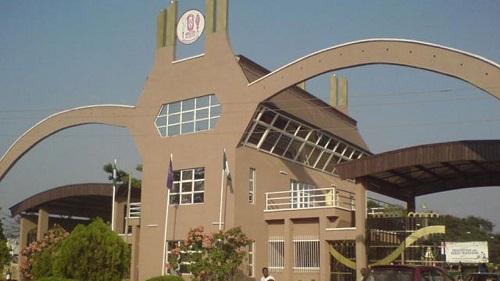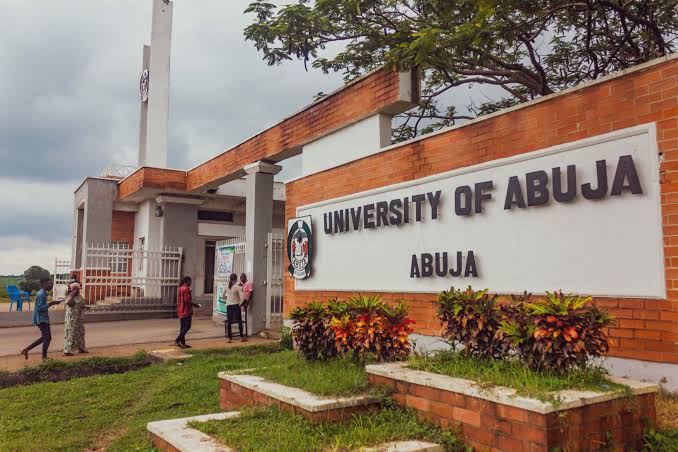The Academic Staff Union of Universities (ASUU) has once again entered the national spotlight after issuing a 14-day ultimatum to the Federal Government (FG) of Nigeria over a series of unresolved issues. In a communiqué released after its National Executive Council (NEC) meeting at the University of Abuja, ASUU stated that unless the government meets its seven-point demands, it will embark on a warning strike which could escalate into a total and indefinite industrial action.
This development has reignited debates about university education in Nigeria, the role of ASUU in defending lecturers’ rights, and the federal government’s willingness to address longstanding challenges in the tertiary education sector. For students, parents, and academic staff, the looming crisis raises serious concerns about the stability of the academic calendar and the overall future of public universities in Nigeria.
Background: A History of ASUU Strikes in Nigeria
ASUU is no stranger to industrial actions. For decades, the union has engaged in recurring strikes to press home demands around funding, salaries, welfare, and revitalisation of public universities. The most recent prolonged ASUU strike occurred in 2022, lasting eight months, and crippling academic activities across Nigeria.
The 2009 ASUU-FGN Agreement, which was designed to improve university funding, staff welfare, and autonomy, has remained largely unimplemented. Over the years, the government has signed several Memoranda of Understanding (MoUs) and Memoranda of Action (MoAs) with ASUU, but many of the commitments remain unmet.
The current 14-day ultimatum is therefore not isolated—it is part of a larger historical pattern where broken promises and unfulfilled agreements fuel recurring crises in the education sector.
ASUU’s Seven Demands to the Federal Government
In its communiqué, ASUU outlined seven key demands that it expects the federal government to address within 14 days. These include:
1. Renegotiation of the 2009 ASUU–FG Agreement
ASUU insists that the 2009 agreement is outdated and requires urgent renegotiation to reflect current realities. The agreement covers issues like salary structure, allowances, university autonomy, and working conditions.
2. Sustainable University Funding
One of ASUU’s biggest demands is for the FG to commit to adequate and sustainable funding of public universities. The union has repeatedly criticized government for underfunding universities, leaving campuses with dilapidated lecture halls, obsolete laboratories, and poor research facilities.
3. Revitalisation of Infrastructure in Universities
Linked to the funding issue, ASUU is demanding a robust revitalisation plan for Nigerian universities. This includes investments in modern learning facilities, hostels, libraries, laboratories, and research grants to improve the quality of education.
4. End to Victimisation of ASUU Members
The union accuses the government and certain universities of victimising ASUU members who participated in past strikes. It cited cases from institutions like Lagos State University (LASU), Prince Abubakar Audu University, Anyigba (KSU), and the Federal University of Technology, Owerri (FUTO).
5. Payment of Outstanding Salary Arrears (25–35%)
ASUU says lecturers are owed between 25 to 35 percent in salary arrears and insists on immediate payment to restore morale and fairness.
6. Settlement of Promotion Arrears for Over Four Years
The union demands that the FG clear promotion arrears affecting academic staff who have been denied their due for over four years.
7. Remittance of Third-Party Deductions
ASUU is also demanding the remittance of third-party deductions such as pensions, union dues, and cooperative contributions which the government has allegedly withheld.
Why ASUU Issued the Ultimatum
The union says it has been patient, but government response to its grievances has been slow and dismissive. Despite the establishment of committees—such as the one led by Abel Enitan, Permanent Secretary of the Ministry of Education—ASUU claims that no concrete solutions have been provided.
By issuing a 14-day ultimatum, ASUU aims to force the government into immediate action, warning that a failure to act will trigger a two-week warning strike, followed by a total and indefinite strike.
Implications of Another ASUU Strike in Nigeria
If the government fails to meet ASUU’s demands, the consequences could be dire:
1. Disruption of Academic Calendar
Students will face lecture cancellations, delayed graduations, and extended academic sessions. This often leads to frustration, loss of morale, and increased dropout rates.
2. Financial and Emotional Strain on Students and Parents
Every ASUU strike leads to wasted accommodation rent, transportation costs, and emotional distress for students and their families. Parents who already struggle with Nigeria’s harsh economy will bear additional burdens.
3. Decline in Educational Standards
Frequent strikes contribute to the decline in Nigeria’s higher education standards. Interrupted research, abandoned projects, and loss of international collaborations further diminish the reputation of Nigerian universities.
4. Escalation of Brain Drain
Poor working conditions and unpaid salaries push many Nigerian lecturers to seek opportunities abroad, worsening the brain drain crisis. Students also increasingly turn to foreign universities, costing Nigeria billions in capital flight.
5. National Development Setback
Education is central to national development. When universities are unstable, innovation, manpower development, and national competitiveness suffer greatly.
Government’s Response So Far
The Federal Government, through the Ministry of Education, has called for patience and dialogue. The Minister of State for Education, Dr. Tunji Alausa, has assured that the government is engaging ASUU’s demands and is working to avoid another shutdown of universities.
However, ASUU maintains that it will only back down if concrete actions are taken—not just verbal assurances.The Academic Staff Union of Universities (ASUU) has once again entered the national spotlight after issuing a 14-day ultimatum to the Federal Government (FG) of Nigeria over a series of unresolved issues. In a communiqué released after its National Executive Council (NEC) meeting at the University of Abuja, ASUU stated that unless the government meets its seven-point demands, it will embark on a warning strike which could escalate into a total and indefinite industrial action.
This development has reignited debates about university education in Nigeria, the role of ASUU in defending lecturers’ rights, and the federal government’s willingness to address longstanding challenges in the tertiary education sector. For students, parents, and academic staff, the looming crisis raises serious concerns about the stability of the academic calendar and the overall future of public universities in Nigeria.
Background: A History of ASUU Strikes in Nigeria
ASUU is no stranger to industrial actions. For decades, the union has engaged in recurring strikes to press home demands around funding, salaries, welfare, and revitalisation of public universities. The most recent prolonged ASUU strike occurred in 2022, lasting eight months, and crippling academic activities across Nigeria.
The 2009 ASUU-FGN Agreement, which was designed to improve university funding, staff welfare, and autonomy, has remained largely unimplemented. Over the years, the government has signed several Memoranda of Understanding (MoUs) and Memoranda of Action (MoAs) with ASUU, but many of the commitments remain unmet.
The current 14-day ultimatum is therefore not isolated—it is part of a larger historical pattern where broken promises and unfulfilled agreements fuel recurring crises in the education sector.
ASUU’s Seven Demands to the Federal Government
In its communiqué, ASUU outlined seven key demands that it expects the federal government to address within 14 days. These include:
1. Renegotiation of the 2009 ASUU–FG Agreement
ASUU insists that the 2009 agreement is outdated and requires urgent renegotiation to reflect current realities. The agreement covers issues like salary structure, allowances, university autonomy, and working conditions.
2. Sustainable University Funding
One of ASUU’s biggest demands is for the FG to commit to adequate and sustainable funding of public universities. The union has repeatedly criticized government for underfunding universities, leaving campuses with dilapidated lecture halls, obsolete laboratories, and poor research facilities.
3. Revitalisation of Infrastructure in Universities
Linked to the funding issue, ASUU is demanding a robust revitalisation plan for Nigerian universities. This includes investments in modern learning facilities, hostels, libraries, laboratories, and research grants to improve the quality of education.
4. End to Victimisation of ASUU Members
The union accuses the government and certain universities of victimising ASUU members who participated in past strikes. It cited cases from institutions like Lagos State University (LASU), Prince Abubakar Audu University, Anyigba (KSU), and the Federal University of Technology, Owerri (FUTO).
5. Payment of Outstanding Salary Arrears (25–35%)
ASUU says lecturers are owed between 25 to 35 percent in salary arrears and insists on immediate payment to restore morale and fairness.
6. Settlement of Promotion Arrears for Over Four Years
The union demands that the FG clear promotion arrears affecting academic staff who have been denied their due for over four years.
7. Remittance of Third-Party Deductions
ASUU is also demanding the remittance of third-party deductions such as pensions, union dues, and cooperative contributions which the government has allegedly withheld.
Why ASUU Issued the Ultimatum
The union says it has been patient, but government response to its grievances has been slow and dismissive. Despite the establishment of committees—such as the one led by Abel Enitan, Permanent Secretary of the Ministry of Education—ASUU claims that no concrete solutions have been provided.
By issuing a 14-day ultimatum, ASUU aims to force the government into immediate action, warning that a failure to act will trigger a two-week warning strike, followed by a total and indefinite strike.
Implications of Another ASUU Strike in Nigeria
If the government fails to meet ASUU’s demands, the consequences could be dire:
1. Disruption of Academic Calendar
Students will face lecture cancellations, delayed graduations, and extended academic sessions. This often leads to frustration, loss of morale, and increased dropout rates.
2. Financial and Emotional Strain on Students and Parents
Every ASUU strike leads to wasted accommodation rent, transportation costs, and emotional distress for students and their families. Parents who already struggle with Nigeria’s harsh economy will bear additional burdens.
3. Decline in Educational Standards
Frequent strikes contribute to the decline in Nigeria’s higher education standards. Interrupted research, abandoned projects, and loss of international collaborations further diminish the reputation of Nigerian universities.
4. Escalation of Brain Drain
Poor working conditions and unpaid salaries push many Nigerian lecturers to seek opportunities abroad, worsening the brain drain crisis. Students also increasingly turn to foreign universities, costing Nigeria billions in capital flight.
5. National Development Setback
Education is central to national development. When universities are unstable, innovation, manpower development, and national competitiveness suffer greatly.
Government’s Response So Far
The Federal Government, through the Ministry of Education, has called for patience and dialogue. The Minister of State for Education, Dr. Tunji Alausa, has assured that the government is engaging ASUU’s demands and is working to avoid another shutdown of universities.
However, ASUU maintains that it will only back down if concrete actions are taken—not just verbal assurances.






